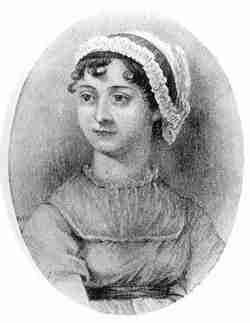
This proposal and Elizabeth’s acceptance mark the climax of the novel, occurring in Chapter 58. The proposal and acceptance are almost a foregone conclusion by this point. Darcy’s intervention on behalf of Lydia makes obvious his continuing devotion to Elizabeth, and the shocking appearance of Lady Catherine de Bourghin the previous chapter, with her haughty attempts to forestall the engagement, serves to suggest strongly that a second proposal from Darcy is imminent.
The clunky language with which the narrator summarizes Elizabeth’s acceptance serves a specific purpose, as it captures the one moment of joyful incoherence for this supremely well-spoken character. She accepts Darcy’s proposal “immediately,” the narrator relates, but “not very fluently.” As Elizabeth allows herself to admit that her love has supplanted her long-standing prejudice, her control of language breaks down. The reader is left to imagine, with some delight, the ever-clever Elizabeth fumbling for words to express her irrepressible happiness






 story about Darcy’s mistreatment of him believable, at least to Elizabeth. Darcy’s pride has been obvious from his first appearance in the novel, but Elizabeth’s decision to trust Wickham introduces her “prejudice” into the story. She dislikes Darcy the first time she meets him. In contrast, she is attracted by Wickham at their first acquaintance, leading her to believe his story even without hearing Darcy’s side of it, and against Jane’s greater sensibility.
story about Darcy’s mistreatment of him believable, at least to Elizabeth. Darcy’s pride has been obvious from his first appearance in the novel, but Elizabeth’s decision to trust Wickham introduces her “prejudice” into the story. She dislikes Darcy the first time she meets him. In contrast, she is attracted by Wickham at their first acquaintance, leading her to believe his story even without hearing Darcy’s side of it, and against Jane’s greater sensibility.








